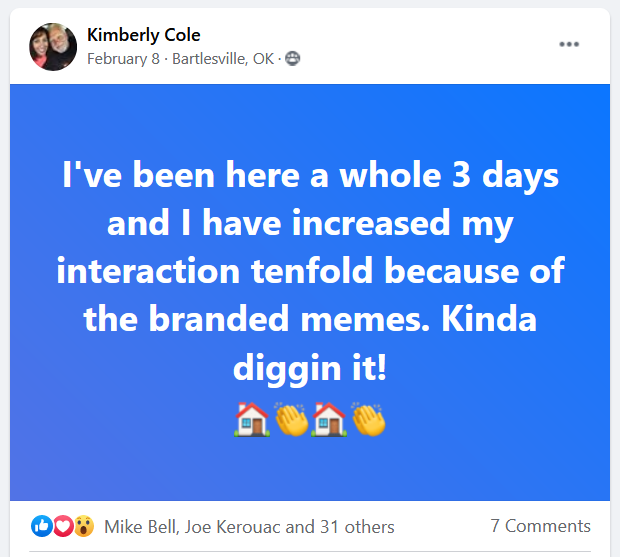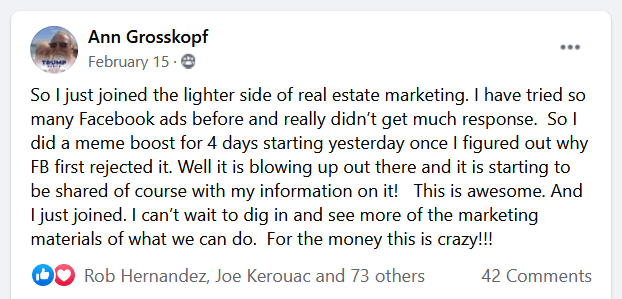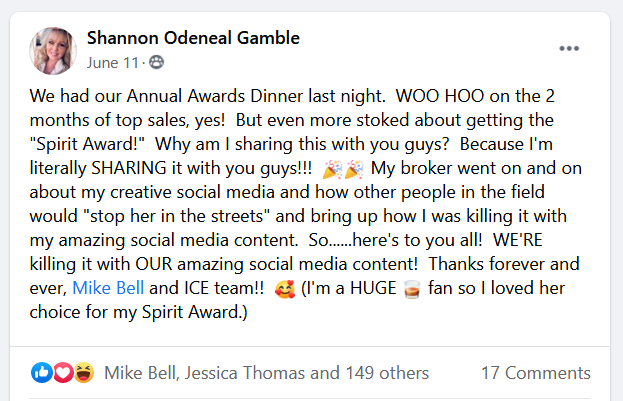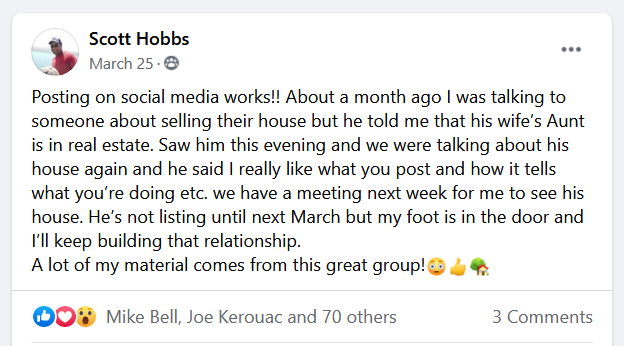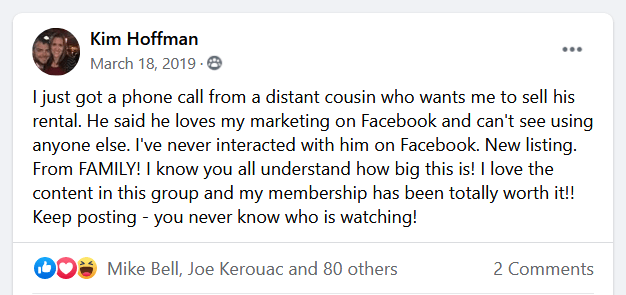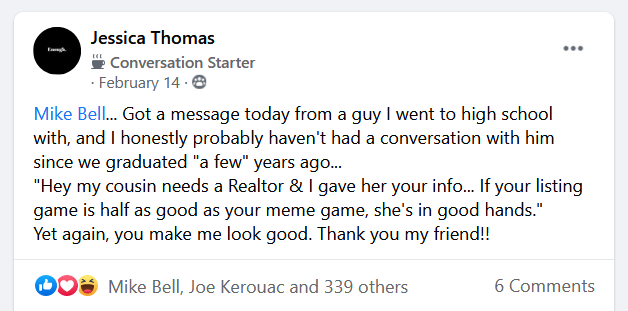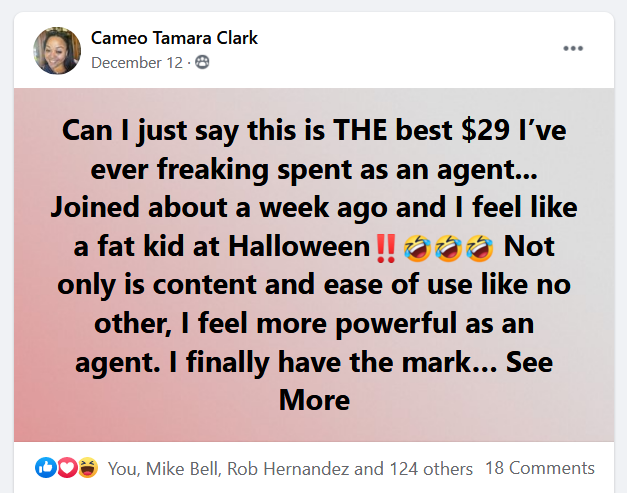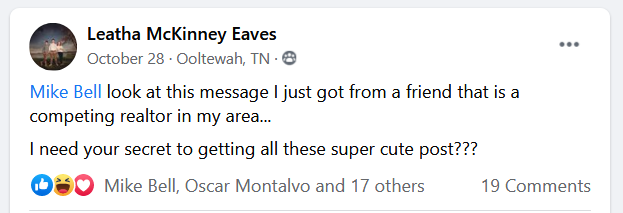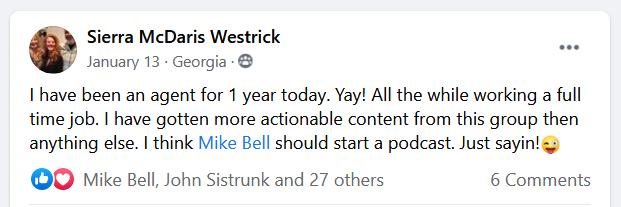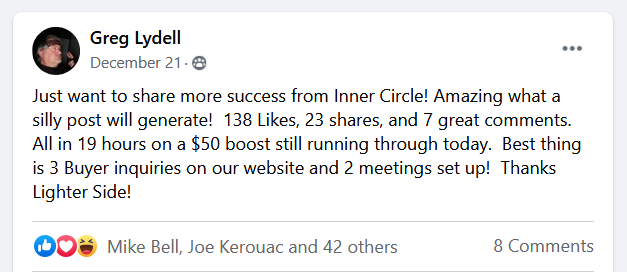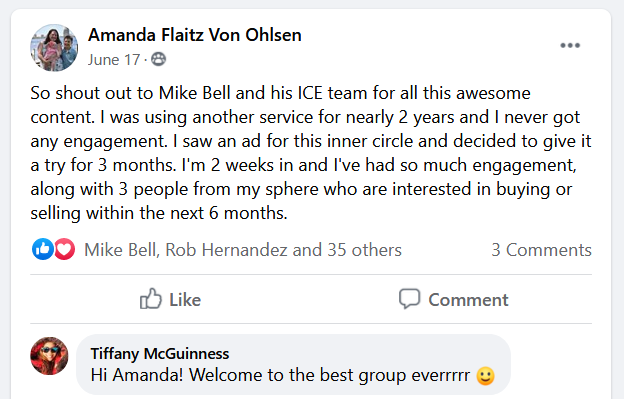
16 Clever Halloween Profile Covers For Real Estate Agents
In this spirit of transparency, we admit we’re totally biased when we say “the most clever.” Why’s that? Because we created them. At any rate,


 When you hire a real estate agent to sell your home, there are obvious things you notice them doing to help your house sell. Things like: hosting open houses, bringing potential buyers on home tours, and marketing your property in multiple ways to make sure it gets enough exposure.
When you hire a real estate agent to sell your home, there are obvious things you notice them doing to help your house sell. Things like: hosting open houses, bringing potential buyers on home tours, and marketing your property in multiple ways to make sure it gets enough exposure.
But when it comes to adding value to your home sale, that’s just the tip of the iceberg. A huge percentage of your agent’s job takes place behind-the-scenes, and they’re working around the clock to get your house sold — even when you’re not looking.
Here are 4 behind-the-scenes way your real estate agent is working to get your house sold:
When it comes to pricing your home, your agent doesn’t just pull a random number out of a hat. Your agent’s recommendation is a result of extensive market research to ensure your home is priced in a way that’s attractive to both buyers and you, the seller.
Agents pull data on comparable properties in your area (from both the MLS and any public databases) for the past 12 to 18 months. They research how each home was priced and how the price correlated to the average time the property sat on the market before coming up with a CMA (comparable market analysis) to determine the market value of your property and suggest a listing price.
All the insights gathered from your agent’s behind-the-scenes research are crucial to pricing your property correctly — and wouldn’t be possible without your agent’s hard work.
A critical part of the home selling process is providing accurate and complete information to potential buyers. But most of the information buyers want isn’t something you, as a seller, will have ready and available.
Your agent gathers all the information a potential buyer might want to know so that if and when they request it, it’s ready to go. Agents research things like the average utility usage of your property for the past 12 months, a breakdown of the home’s floor plan, and a list of all available electricity and gas vendors in the area to make it available to buyers, which saves you a ton of time and hassle.
As part of their marketing efforts, your agent likely has your property listed on both the MLS and multiple public forums in order to get your home in front of as many potential buyers as popular. And while the increased exposure is great for driving interest in your home, someone needs to manage all the inquiries, follow up with interested buyers, and schedule viewings.
And that person is your real estate agent.
When your agent calls you to schedule a tour, that’s just a small part of the process. Before they called you, they’ve already answered email inquiries, fielded multiple phone calls, talked to buyer’s agents, and weeded out people who aren’t serious about viewing — and potentially buying — your home.
The call you get to schedule the tour is the last step in a lengthy scheduling process — most of which your agent manages behind-the-scenes.
Now, once a qualified buyer makes an offer on your home — and you decide to accept it — your agent’s job goes into high gear. Now, that’s not to say that managing the close happens entirely behind-the-scenes; obviously, your agent is going to work with you to get the job done. There’s plenty of the closing process (from negotiating with the buyers to reviewing contracts) that you’ll get to witness up close and personal.
But there’s a lot more that goes into managing the close of your home then what you actually see from your agent.
They have to make sure the signed contracts are sent to everyone who needs a copy, including the lender, the buyer’s agent, the title company, and any involved attorneys. They have to file a status change with the MLS from “For Sale” to “Pending” and, finally, to “Sold.” They need to schedule the final walkthrough with the buyers and their agent.
Closing on your home? It’s kind of a logistical nightmare.
But luckily for you, when you work with a real estate agent, they take care of all the (many) details and logistics that need to be managed throughout the closing process, saving you immeasurable time, money, and frustration.
When you work with a real estate agent, it’s easy to see the value that they bring to the table during the process of selling your home. But what you see is just the beginning. The hours you see your agent putting in — the home tours, the open houses, the phone calls — are just a tiny fraction of the work they’re actually doing. Your agent is working around the clock to get your home sold… and the majority of that work takes place behind-the-scenes.
Members: Sign in here to share this article with your branding. Sign in here.
Not a member? Seriously? Learn how you can share articles like this one with your branding. Learn more.
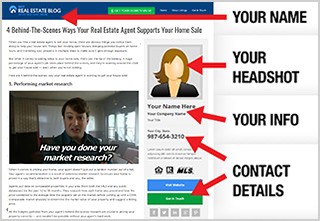 Pin
Pin

(Shh, our secret)
Show your sphere your an expert. We have over 2100 articles covering every real estate topic your audience will love.
Position yourself as a real estate authority!
Real estate + topical events — the perfect match!
Become the bearer of good vibes!
Because hey, everyone loves to laugh!



Get our weekly email that makes communicating with your sphere on social actually enjoyable. Stay informed and entertained, for free.

In this spirit of transparency, we admit we’re totally biased when we say “the most clever.” Why’s that? Because we created them. At any rate,

Have you heard how amazing AI is, and how you should be using it to improve your real estate business in every way?! That’s rhetorical,

Real estate agents are very familiar with making offers on behalf of clients, since they’re often writing them for buyers. But very few agents are

You probably never even heard the term until you became a real estate agent. But once you became one, you were probably told how important

In this spirit of transparency, we admit we’re totally biased when we say “the most clever.” Why’s that? Because we created them. At any rate,
Depending on your situation, it may not take the full 30 minutes.

This reset password link has expired. Check the latest email sent to you.
